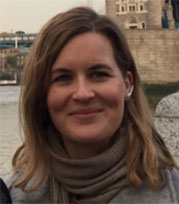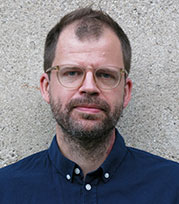The academic community should refuse to collaborate when industry demands control over trials

 Academic and industry research collaboration has become increasingly common in clinical medicine.1 Over the years, we have worked in various departments, across multiple specialties, where clinicians act as investigators, recruiting and enrolling patients in industry funded drug trials, or as academic researchers conducting industry funded studies.
Academic and industry research collaboration has become increasingly common in clinical medicine.1 Over the years, we have worked in various departments, across multiple specialties, where clinicians act as investigators, recruiting and enrolling patients in industry funded drug trials, or as academic researchers conducting industry funded studies.
We noticed that some academics received industry funding to conduct clinical research, but soon discovered that they had limited freedom. They found that the funder ran every research meeting and essentially had deciding power. Another academic—who has been involved in many industry funded trials—described how they only look at what they or their institution get out of the collaboration before they sign a contract with an industry funder. They then expect the steering committees and ethical review boards to oversee responsible research conduct.
These accounts gave us reason to explore the nature of these collaborations further and determine who does what, and who is in control in industry funded trials. We undertook a cross sectional study of 200 vaccine, drug, and device trials published in high impact journals, and a survey of lead academic authors.
Conducting our study on academic and industry collaboration was not easy. We quickly discovered that trial publications often lacked basic information about who conducted essential parts of the trial (such as the statistical analysis, for example). The role of the funder was often described in vague terms and sometimes we found contradictory information in the supplementary materials. We also found that, in some cases, what was described as an independent steering committee in fact involved employees of the industry funder.
Conducting a survey as part of our study also proved difficult. Lead academic authors were often busy senior clinicians and this affected our response rate. Some authors emailed to apologise and declined to participate because of a lack of time or interest. Others seemed annoyed by being asked to participate, either with the Cochrane collaboration or with surveys in general. Similar reactions were described by Kassirer when he investigated financial conflicts of interest.2
We speculate that this type of reaction could result from academics feeling their integrity and primary interests are being questioned. It is possible that some are pleased with the status quo and aren’t interested in shining a light on some of the less flattering aspects of industry collaboration. We also found that a few of the lead academics had started working for industry full time and therefore declined to participate, or we were unable to get in contact with them as the company would not provide us with contact details or put us in contact with them.
From the survey, we learnt that lead academics generally found collaboration with industry beneficial, both personally and for their institutions. They highlighted large industry grants, high impact journal publications, and recognition from their institution and colleagues as important benefits. It is easy to understand why some may accept having their academic freedom constrained.
We also found, however, examples of industry funded trials conducted independently of funders, with academics controlling the trial database, undertaking independent statistical analysis, and having the freedom to publish findings. Our clinical recommendations depend on clinical trials being reliable and conducted in the patients’ best interests—without commercial considerations. Independent trials are the way forward; the academic community should refuse collaboration where industry demands control over trial design, conduct, data, statistical analysis, or reporting.
Kristine Rasmussen, researcher, Nordic Cochrane Centre, Rigshospitalet, Copenhagen, Denmark.
Andreas Lundh, senior researcher, Centre for Evidence-Based Medicine Odense (CEBMO) and Odense Patient data Exploratory Network (OPEN), Odense University Hospital, Odense, Denmark.
Competing interests: See linked research paper.
References
[1] Hakoum MB, Jouni N, Abou-Jaoude EA, et al. Characteristics of funding of clinical trials: cross-sectional survey and proposed guidance. BMJ Open 2017;7:e015997. https://bmjopen.bmj.com/content/7/10/e015997
[2] Kassirer JP. On the take: How medicine’s complicity with big business can endanger your health. Oxford University Press 2005.
